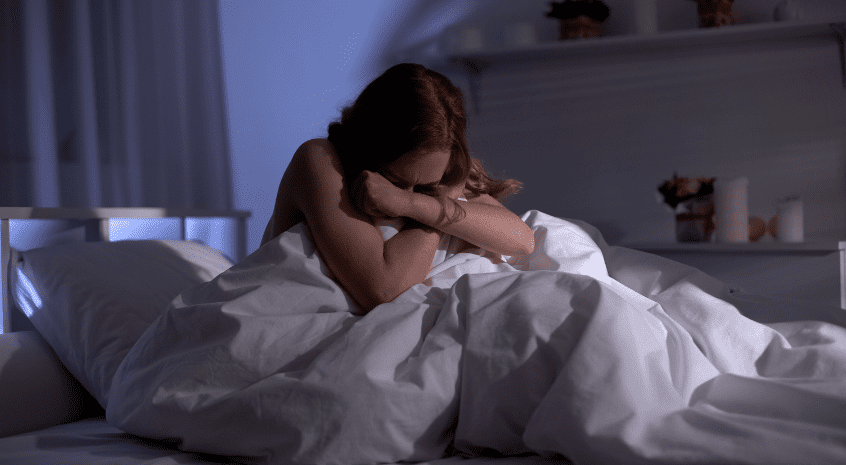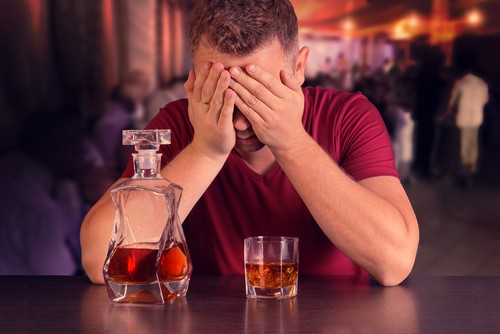Schizophrenia has five distinct causes, one of which is drug abuse. Psychadelic drugs, cannabis, and amphetamines are known for increasing the risk of schizophrenia later in life. In the simplest of terms, yes drug abuse can cause schizophrenia, but we’ll go more in-depth on that later. Schizophrenia is a complex disease that affects people differently. To learn more about the link between schizophrenia and drug abuse, as well as how people with schizophrenia can receive the treatment they need, keep reading.
What is Schizophrenia?
Schizophrenia is a chronic brain disorder that’s very rare, affecting less than one percent of the population in the United States. Schizophrenic people go through periods of active schizophrenia and inactive schizophrenia. During the active periods, they may experience symptoms such as:
- Delusions
- Hallucinations
- Distorted perceptions
- Paranoia
- Disorganized speech
- Trouble thinking
- Lack of motivation
- Poor memory
When treated for schizophrenia properly, many people experience relief from most of their symptoms, with little chance of relapse unless medication is discontinued. There’s no cure for schizophrenia, making proper treatment even more important.
As people with schizophrenia grow older, their symptoms often decrease in severity. However, if patients don’t take their medication, abuse drugs, or find themselves in stressful situations, their symptoms may be worse.
There’s also a lack of appropriate representation of schizophrenia in media, often showcasing people with this disease as crazy and psychotic. However, that’s not the case. Like with any disease or disorder, these people just require proper treatment and medication, not to be labeled as crazy.
Does Drug Abuse Cause Schizophrenia?
There are five main factors that lead to an increased risk of developing schizophrenia, including drug use. The other four risks are genetics, brain development, neurotransmitters, and complications during birth. While using drugs doesn’t directly cause schizophrenia, it may trigger schizophrenia in people who are already susceptible to the disease, such as people with other risk factors like a family member who had it or problems during their birth.
Drug abuse can also cause people to relapse and experience psychosis when recovering from an earlier episode. Studies also show that teenagers and young adults who use cannabis regularly are more likely to develop schizophrenia later in life than teenagers and young adults who do not use cannabis regularly.
Other Mental Health Issues Caused by Drug Abuse
Other than schizophrenia, which can be classified as both a brain disorder and a mental health disorder, drug abuse can bring about a lot of other issues, such as depression, anxiety, and insomnia. Many times, people use drugs as a way to cope with issues they don’t know that they have, like depression. Only after using drugs for a long period of time do they realize that their mental health issues aren’t going away because drugs aren’t the solution. Oftentimes it takes an outside party to help them realize that they’re going through something.
Depression
Downers like alcohol and benzodiazepines are known for causing low lows, making people feel depressed after taking these drugs. Benzodiazepines can cause a sluggish feeling that, while making people feel calm, might make them feel sad or depressed. Alcohol does the same thing, often making people cry or get “in their feelings” after feeling on top of the world for a few hours. Depression also often occurs after a crash from drugs like cocaine.
Anxiety
Lots of stimulants, like cocaine and methamphetamines, often cause anxiety because of how high they make your heart rate. The “up” feeling associated with these drugs might make people anxious, urging them to take more drugs as a way to solve the problem, only making it worse in the long run. After crashing from these drugs, users are known to experience even more anxiety and even depression during that period.
Insomnia
Insomnia often occurs during drug use and as withdrawal symptoms from many types of drugs. Drugs like benzodiazepines and alcohol cause extremely stressful withdrawal symptoms that can be dangerous depending on the amount consumed. When experiencing withdrawal symptoms from these drugs, patients might have trouble sleeping.
Is Drug Abuse Caused by Mental Health Disorders?
Yes! Many people often turn to drugs when they have trouble dealing with their existing mental health disorders, such as anxiety, depression, ADHD, and more. Drug abuse is often used as a coping mechanism when the user hasn’t developed any healthy ones. It may seem like a last resort or a last-ditch effort to feel better, even though it will ultimately only make things worse.
Not only that, but patients who are prescribed medications like benzodiazepines and Adderall might become addicted after taking their prescription as prescribed by their doctor. Because these drugs are super addictive and are extremely habit-forming, it’s easy for patients to become dependent, requiring a larger dose quickly. When the doctor ultimately decides to stop prescribing the medication, users might turn to street drugs as a way to cope with withdrawal symptoms.
Post Traumatic Stress Disorder (PTSD) is another mental health disorder that is known for causing drug abuse. Because users have experienced trauma, they might not know how to cope with it, leading to them using drugs instead. In the same vein, they might be prescribed benzodiazepines for their disorder, only to eventually become addicted.
How to Treat Co-Occurring Disorders
Because mental health disorders and other co-occurring disorders like schizophrenia can cause people to reach for drugs when they feel that they don’t have another healthy coping mechanism, it’s important to treat the mental health disorders and other disorders first. By treating the root of the issue, patients can heal from their trauma and learn healthy coping mechanisms, reducing their risk of relapsing after they leave treatment.
Seek Treatment Today
If you or a loved one is addicted to psychedelic drugs, amphetamines, cannabis, or cocaine and is worried about developing schizophrenia, it’s time to seek treatment. To learn more about our treatment programs, call today. We’re eager to answer any questions you may have, and get you on the road to sobriety.








